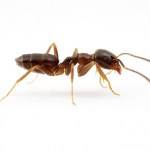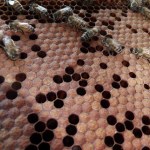Science
Over in yesterday's communications skills post commenter Paul raises a question about priorities:
I wonder to what extent good writers, public speakers and communicators are being promoted in science in place of good thinkers - people who can challenge prevailing dogma, invent promising novel approaches to old problems, and who have the intuition needed for deducing correct theories from just a few observations.
I think of this as the "Weinstein Perelman Theory" because Eric Weinstein on Twitter has been pushing something similar with respect to Grisha Perelman turning down major math…
There's a problem brewing and ScienceBlogs, a disturbance in the Force, if you will, and it's a doozy. It's a darkness that's distubed several of my fellow ScienceBloggers to the point where I fear that some of them may leave. Indeed, it's a spectacularly tin-eared and idiotic decision on the part of management that is leading me to start to wonder about my continued relationship with ScienceBlogs.
All in all, this is most definitely not good.
It all started when PalMD and I noticed something popping up on the ScienceBlogs newsfeed. It was a new blog in the collective announcing itself thusly…
As I am still getting lengthy comments at the Chris Mooney post accusing me of making unreasonable demands on scientists, I thought I should spell out as explicitly as possible what skills I think scientists ought to have. This probably won't solve the problem, but it'll give me something to point to the next time I get asked.
So, what communications skills should scientists have? The answer depends on what kind of science you're going to do, and what you want to do with it.
First and foremost, though: If you want to be a successful scientist, you need good communications skills. Full stop.…
It's funny what inspires one toward a career in science or engineering.
Kary Mullins who earned the Nobel Prize in Chemistry in 1993, says it was the experience of growing up in the rolling foothills of the Blue Ridge Mountains in North Carolina that did it for him. There, in a more simple and idyllic time than today, he had the freedom to build and launch his own rockets, and to dream while exploring the biodiversity in the woods, the swamp and the orchards near his home.
Inspiration and the chance to discover are important for all of us. Like with Kary Mullins, these experiences plant…
tags: Stephen Hawking on Religion: Science Will Win, Diane Sawyer, Stephen Hawking, interview, science, religion, streaming video
World News Anchor, Diane Sawyer, asks physicist Stephen Hawking about the biggest mystery he'd like solved. He said, "I want to know why the universe exists, why there is something rather than nothing".
Tapinoma sessile
Ant ecologist extraordinaire Rob Dunn sends along the following request:
We are looking for live colonies of
Aphaenogaster rudis
Temnothorax curvispinosus or T. longispinosus
Crematogaster lineolata
Tapinoma sessile
from anywhere within their ranges. If you are potentially willing to contribute colonies we would be very grateful. Please contact Sarah Diamond (sediamon@unity.ncsu.edu) regarding details. If you are interested in more extensive collection of colonies, we may be able to reimburse your collection time. These collections will be used to try to understand…
Summer is here, which means vacations for lots of people, which means "beach reading"-- trying to read a book or two while kicking back somewhere. The ideal beach read is something that isn't so heavy as to bring you down or demand too much attention, but is also serious enough that it's not embarrassing to be seen in public reading it.
Clearly, the best choice for beach reading this summer is How to Teach Physics to Your Dog-- it's got real, solid physics, but also a talking dog. What more could you want?
What if you've already read How to Teach Physics to Your Dog, though? Are there other…
Status report: I'm in the home stretch of writing my grant. It will be finished by 8 AM, when I have to be at work again, in tip top mental condition for the meetings I'll have to endure all morning. (What the heck happened to not doing anything substantive the day before a holiday weekend? At least I don't have to operate or see patients.) Whether it will take an all nighter to do it I am not yet sure. Whatever the case, here is the perfect mood music for late night science and grant writing.
"We're trapped in the belly of this horrible machine, and the machine is bleeding to death."
Yeah,…
The office of the Vice President for Research at the Pennsylvania State University has released the conclusions of its inquiry into the "climategate" allegations against Prof. Michael Mann.
After a cracker broke into the e-mail archives at the Climate Research Unit at East Anglia University, a prolonged and creative controversy broke out across the media and the blogosphere.
After substantial, and in some cases highly inappropriate, external pressure, Penn State promptly reviewed the issue. The VP for Research synthesized the claimed allegations into four formal charges of possible…
My contribution to the Sb-wide Zombie Day will soon be posted, but if you need something to sink your teeth into before then, check out today's new issue of the Times of London science magazine Eureka (included inside the Times, for UK readers). Inside you will find two stories by me - one on paleobiology in the 21st century and the other on our changing view of tyrannosaurs - and you can access them online behind a free registration wall. It was a wonderful opportunity to write for Eureka, and I am indebted to editors Mark Henderson and Antonia Senior for their support and the freedom to…
Today's bug news carries sensational reports of a study claiming new evidence linking cell phone use and the dreaded Colony Collapse Disorder.
London, England (CNN) -- A new study has suggested that cell phone radiation may be contributing to declines in bee populations in some areas of the world. Bee populations dropped 17 percent in the UK last year, according to the British Bee Association, and nearly 30 percent in the United States says the U.S. Department of Agriculture.
This bit of silliness resurrects a fanciful hypothesis first raised when honey bees started disappearing a couple…
The kerfuffle of the moment in the science blogosphere once again relates to Chris Mooney, who is pretty much a kerfuffle looking for a place to happen at this point. This time around it centers around a Washington Post op-ed that is basically the executive summary of a American Academy of Arts and Sciences paper that is itself the executive summary version of a series of four workshops on science and the public. You can get a reasonable sense of the kerfuffle from the links in Chris's responses to the responses.
I'm currently making one of my intermittent attempts to be a better person--…
I gave a short introduction to how to give a presentation today to the students who will be presenting their research in our twice-weekly Summer Student Seminar Series. This included examples of a data slide that is bad in the ways that students' first attempts at data slides tend to be bad, and the same graph re-done in a more appropriate manner. As long as I'm doing format conversions of this anyway, I figure it might be amusing to post them here. So, here's the bad graph, with the bullet points highlighting the mistakes:
And here's the good version:
(The seminar series features three…
A couple of significant news items from the world of particle physics:
There was a conference on neutrino physics recently, and the big news from there is that two experiments measure something funny with neutrino oscillations, namely that the oscillations seem to proceed at different rates for neutrinos and antineutrinos. This is a really surprising sort of asymmetry, and would be awfully hard to explain. These are, however, preliminary results that are being released now because there was a conference on neutrino physics, not because the people doing the experiments have rock-solid proof…
Last week, Dmitry Budker's group at Berkeley published a paper in Physical Review Letters (also free on the arxiv) with the somewhat drab title "Spectroscopic Test of Bose-Einsten Statistics for Photons." Honestly, I probably wouldn't've noticed it, even though this is the sort of precision AMO test of physics that I love, had it not been for the awesome press release Berkeley put together, and this image in particular (grabbed with its caption):
This is a nifty paper, and deserves a little explanation in Q&A format:
Is this another New Scientist style "Einstein was wrong" paper? No. If…
There is a proposal for a Physics Q&A site along the lines of Stack Overflow for computer stuff. Like many such projects, this largely conflates "physics" and "theoretical particle physics," so I'm not sure how much of a contribution I can really make. I've got plenty of theorist readers, though, so if this seems like the sort of thing you would like to have exist, click the link above.
I really hate this.
I really hate having to take a friend to task, but he leaves me little choice. You see, I actually like Chris Mooney. Back in the day, I even even hoisted a pint with him at the Toledo Lounge in D.C., round about the time of the commencement of the whole "framing" kerfuffle that has periodically flared up to engulf ScienceBlogs and the rest of the science blogosphere. We had great fun making fun of everyone's favorite creationist neurosurgeon, particularly his claim that the "design inference" has been "of great value" to medicine and has been a great boon to medical…
Josh Rosenau makes an excellent and important point regarding prayer meetings and the Gulf oil spill: that the point is not so much that God will stop the oil gushing into the Gulf, but that religious groups are a key community organization point for getting people together to work on the problem. He puts this into a larger context toward the end of the post, saying things I've said myself numerous times:
Most people attend church for a lot of reasons, and many of those reasons are self-reinforcing. Someone who goes to church with no particular views on theism (pro, con, or agnostic) could…
tags: Birdbooker Report, bird books, animal books, natural history books, ecology books
Books to the ceiling,
Books to the sky,
My pile of books is a mile high.
How I love them! How I need them!
I'll have a long beard by the time I read them.
~ Arnold Lobel [1933-1987] author of many popular children's books.
The Birdbooker Report is a special weekly report of a wide variety of science, nature, environment and behavior books and field guides that currently are, or soon will be available for purchase. This report is written by one of my Seattle birding pals and book collector, Ian "…
Inside Higher Ed has a news squib about gender disparities in academic science, which points to a Nature story about a survey on job satisfaction (bad IHE, giving a false impression on the story!). The gender portion of the story is limited to a short section at the end of the article, and one graph:
The larger story is actually pretty positive, but I fear that as IHE did, too much attention will be focused on this one graph (which, by the way, is surprisingly badly done). There's a fairly narrow point about the presentation of this that I think is worth making (even though it will likely be…

